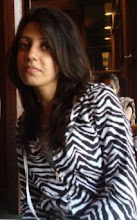David Barsimian is a dynamic and witty speaker as well.The Institute for Alternative Journalism named him one of its “Top Ten Media Heroes.” Barsamian lectures on U.S. foreign policy, the media, propaganda, and corporate power in the U.S., Canada, Brazil, India and Europe. He is also the winner of the ACLU's 2003 Upton Sinclair Award for independent journalism.
AR presents information and perspectives that are ignored or distorted in the corporate-controlled media. The one-hour program is broadcast on public radio stations in the United States, Canada, Australia, and several other countries. His interviews and articles appear in The Progressive, The Nation, Z and other journals and magazines. Barsamian also lectures on U.S. foreign policy, corporate control, the media, and propaganda.As a writer, Barsamian is best known for his series of interviews with Noam Chomsky, which have been published in book form and translated into many languages, selling hundreds of thousands of copies worldwide.
Barsamian recently visited Pakistan. His talks primarily focused on media propaganda and importance of independent media. He gave lectures on the current state of the country and how far the US has been involved. In his discussion he brings in the limelight the creation of the Mujahedeen by US President Reagan during the Cold War. They served the purpose of fighting the Soviet Union and were led to think they were a part of a holy war, which they called The Great Jihad. This piece of history is virtually unknown by common American citizens who are made to believe that terrorism is purely a component of Islam.The American Media has successfully manipulated the truth behind activities of the government.
“Mainstream media is a source of mass distraction”, was how David Barsamian started his talk at in Karachi because they provide a total crafted perception of reality and misleads the masses. Its highly self- censored and lot of filtering takes place. The media has been able to coin certain terms and virtually change their meaning to further distract viewers: Jihad, Extremism, Fundamentalist, Terrorist, Weapons of Mass Destruction, and War on Terror, just to name a few.In his lecture Barsamian stated that there are five corporations which dominate the American media and thus control what the public sees and hears and how they perceive this news. He went on the say that most Americans have no idea of what is happening in the Eastern world and even recalled that someone once asked him whether Pakistan was located near Palestine. They are unaware of the reality that theUS has an agenda in the region and is there for its own gains. It is evident in many cases such as when the US funded groups in Balochistan to enter Iran and engage in activities which would destabilize Tehran. The US has always been interested in being involved in countries with a military regime and which are strategically beneficial for them and most Americans are unaware of the damage and destruction carried out by American Foreign Policy in the Middle East and other developing countries. he also mentioned that people in the US do not know how the attack on Iraq has resulted in more refugees than exist in Darfur. It is just not covered in Amercian mainstream media.
Talking about Alternative Radio, David said that organizations like his actually looked at world isuses “more fairly” and because they were not part of large groups, they were not affiliated to any political groups. Alternative media does not carry advertising and so does not have to be sensitive to issues that may annoy advertisers. They are therefore more “independent” and subjective in their views
